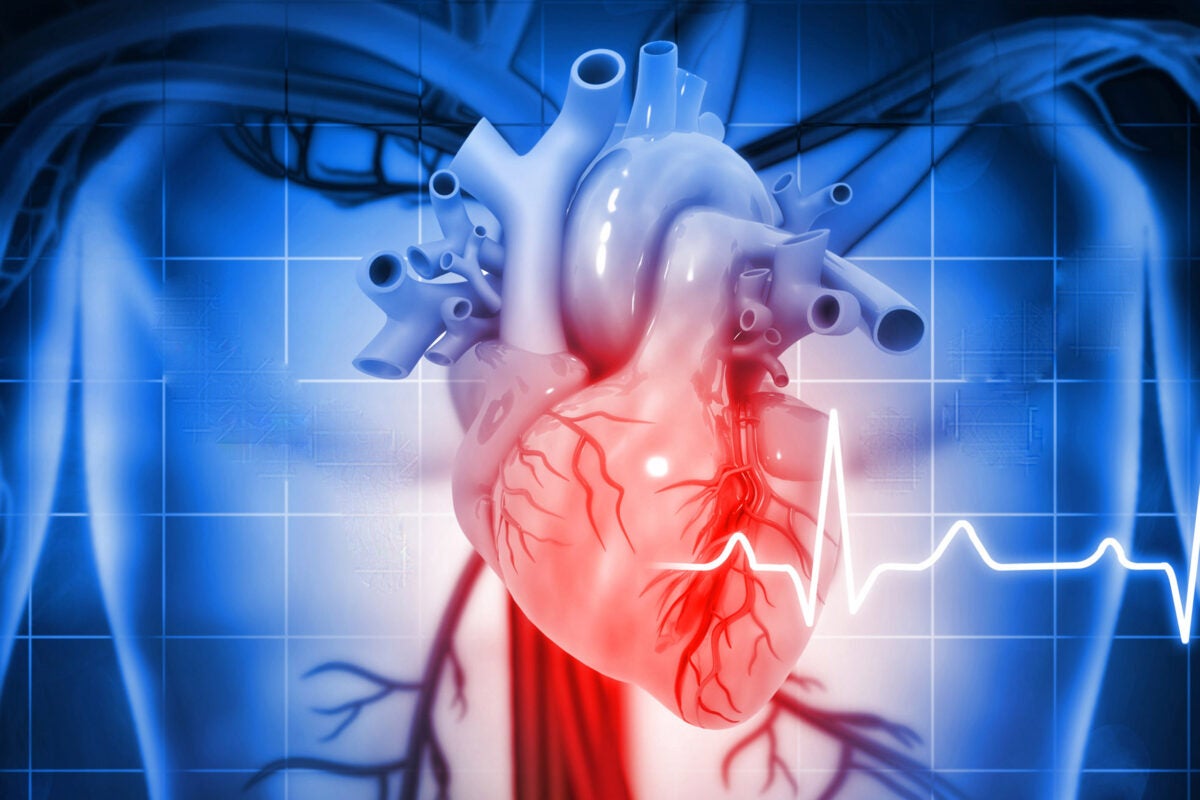Ding Liu (right), a postdoctoral researcher in the lab of Catherine Dulac (left).
Veasey Conway/Harvard Staff Photographer
Health
Food, water — and a friendly face
Health professionals view social contact as basic human need. Now researchers have tracked neurological basis for it.
Health and medical professionals have come to view social connection as a fundamental human need akin to food and shelter. In fact the U.S. Surgeon General highlighted social isolation as a major public health concern in 2023.
However, the mechanics of how loneliness or instinctive social need is encoded in the brain are unclear. A new study published in Nature, “A Hypothalamic Circuit Underlying the Dynamic Control of Social Homeostasis,” explores the neurological basis for this need, uncovering the systems that govern the desire for company.
“Recent studies, including ours, suggest that social needs are similarly important for the health of animals as other [basic] needs,” said Ding Liu, a postdoctoral researcher in the Catherine Dulac Lab and Nao Uchida Lab in the Department of Molecular and Cellular Biology and the Center for Brain Science, who led the study.
Moreover, the inability to engage in fruitful social interactions is one of the most debilitating aspects of mental illnesses such as autism, depression, and schizophrenia, said Dulac, the Samuel W. Morris University Professor.
She noted that while researchers do not understand why this is so, gaining a mechanistic understanding of how the brain regulates the urge to be with other people will provide critical information on healthy and diseased brain states associated with social context.
What if the desire for social interaction was not driven by wanting to feel good but avoiding feeling bad — as is the case with hunger and thirst?
To understand the need for social interaction, Liu and his team turned the conventional approach on its head. “A generation of research has been talking about the rewarding nature of social behavior,” said Liu, citing such compounds as dopamine, oxytocin, and serotonin, which are released by social interaction and produce feelings that reward this interaction.
Instead they asked: What if the desire for social interaction was not driven by wanting to feel good but avoiding feeling bad — as is the case with hunger and thirst? Researchers have identified neurons that trigger such drives associated with aversive experience.
“For example, if we are looking for the ‘hunger neurons,’ we should look for the neurons that are active during the time we are deprived of food, rather than the feeding period,” explained Liu.
Hypothesizing that the need for social behavior may be more like those for hunger or thirst, the team focused on neural activity in the hypothalamus, the site of neurons governing these other needs.
Aiming to identify the neurons triggered by isolation, the researchers created a scenario. By isolating mice for several days, they identified two distinct periods: the deprivation phase (when the mice were alone) and the reunion phase (when the animals were once again together).
They then observed, using activity-based gene expression and in vivo calcium imaging, which neurons become active during periods of “social seeking” (that is, the deprivation phase), and “social satiety” (the reunion phase).
Complicating their findings was the discovery that if mice are deprived for too long, their response changes. “If you isolate the mice for more than four weeks, they start to dislike social behavior,” he said. Isolation has become the norm, and having company is disruptive, he hypothesized.
The researchers also looked at how sensory inputs contribute to social need in mice. In one experiment, mice were physically separated from siblings but could see, hear, and smell them through a perforated divider. But the end result was similar to that of the social isolation experiment, suggesting touch stimulation is indispensable for the fulfillment of social need.
To explore this further, the researchers created a touch preference experiment, in which mice could choose to enter a tunnel lined with soft cloth or one of bare plastic. The mice had a clear preference for the cloth tunnel after social isolation.
“At least for mice,” concluded Liu, “touch is a super important modality to sense the change of social environment.”
This, he noted, may have direct relevance for humans. “For humans, touch is a very important part of social behavior as well,” he said. “We hug each other; we shake hands; and in intimate relationships we even have more touch-based behavior.”
These days, when more and more of our interactions are on screens rather than in person, such research may unlock clues to how we humans react. For people “overwhelmed by the internet,” hypothesized Liu, “touch is one thing that is missing.”
“Studying why we need to socialize helps us understand the biological and psychological foundations of human behavior,” said Mostafizur Rahman, a postdoc in the Dulac Lab and one of the paper’s authors. “By exploring these roots, we can better understand how social bonds influence our mental health, and relationships with others.”
Concluded Dulac: “Our discovery of similar neural circuit architectures to encode social need and physiological needs such as the needs for water, food, and sleep directly illustrates how fundamental social interactions are for healthy lives.”
This work was supported in part by funding from the National Institutes of Health.














